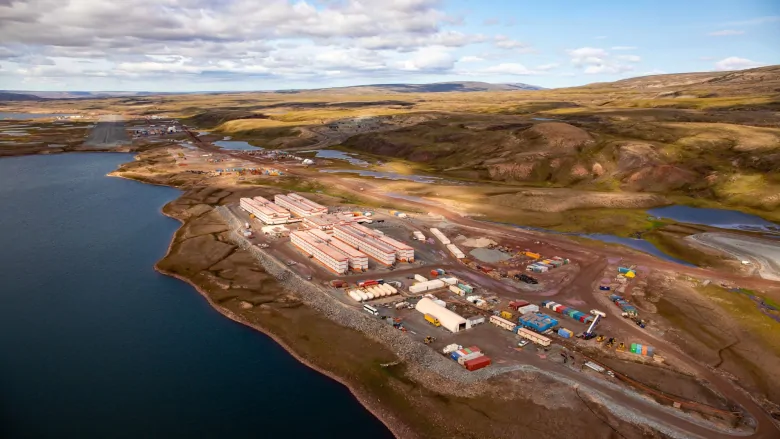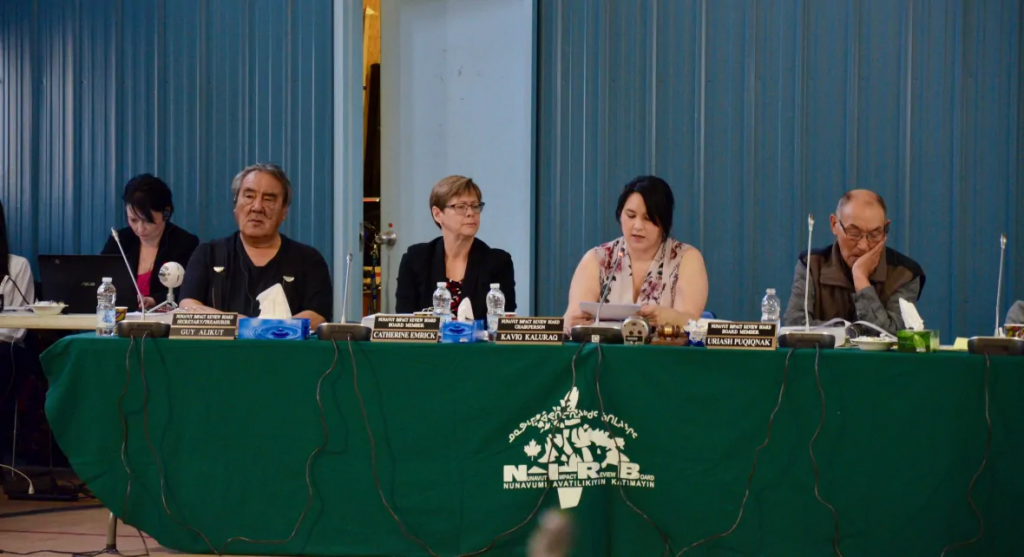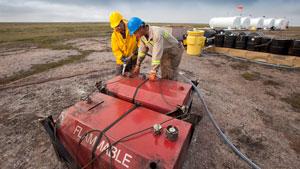Canadian Indigenous community benefit agreement worth $1B over life of Mary River Mine in Nunavut

Baffinland Iron Mines Corporation and the Qikiqtani Inuit Association have a new agreement for Inuit oversight of the Mary River Mine. Officials from both groups say it will be worth more than $1 billion over the life of the iron ore mine.
Announced Monday, the Inuit Certainty Agreement was signed on June 16.
It’s been in the works since an environmental review of the mine’s production and rail expansion ended abruptly last fall, says PJ Akeeagok, president of the Qikiqtani Inuit Association.
The new, legally binding agreement clears up most technical concerns that previously left the Baffin Inuit organization unable to support the Nunavut Impact Review Board’s hearing for the phase-two expansion, which would increase production at Mary River.
The agreement is focused on environmental protection, and lays out mechanisms for making sure Inuit have a say in environmental monitoring, he said.
It promises that an Inuit stewardship program will expand to all communities impacted by the mine. These Nauttiqsuqtiit Inuit Stewards will monitor the land and water and report to a committee that will be able to tell the mine when something is wrong.
This information will be used in the mine’s adaptive environmental management plan, a living document that will be informed by Inuit Qaujimajatuqangit (Inuit knowledge).

A country food study will also be led by Inuit in Pond Inlet, Nunavut, to gather baseline data for use in future environmental decision-making between Inuit and the mining company.
The Mittimatalik Hunters and Trappers Organization will be given a one-time payment of $1.3 million to offset past interruptions to harvesting.
Brian Penney, Baffinland president, said the new agreement is meant to give communities the confidence they need to allow the mine’s phase-two production and rail expansion to go ahead.
These new supports will be paid for by Baffinland directly, or through mining royalties paid to the Qikiqtani Inuit Association.
Benefits come after rail expansion
Most of the benefits rely on the production expansion going ahead, because the Mary River Mine can only be profitable over the long-term if a railway is built to replace its current trucking operation, Penney said.
“The funding required to execute on it requires that level of financial security that Baffinland only receives through a railway operation,” he said.
The Nunavut Impact Review Board’s environmental hearing for the Mary River expansion continues to be postponed because of COVID-19. Penney said he has no indication now as to when the hearings will happen.
With this new agreement signed, Akeeagok says the Qikiqtani Inuit Association is comfortable moving ahead with that process, when the pandemic allows for it.
He said the agreement does not mean that all Inuit are in favour of the mine’s expansion. Hamlets and community harvester groups will still have their own say in the review.
Mining royalties for Inuit would more than double
Starting immediately, royalties paid to the Qikiqtani Inuit Association will increase from 1.19 per cent to 1.5 per cent.
If the expansion goes ahead, royalties will gradually increase to three per cent over the next five years.
Up front milestone payments that add up to $45 million will also be paid over a five year period, if the expansion happens.
For employment, Baffinland would pay penalties if it doesn’t hire enough Inuit, or if Inuit-owned companies are not growing because of the mine.
Penney said training funds will increase recruitment and retention of Inuit employees. Baffinland has already promised $10 million toward a training centre in Pond Inlet.
Inuit employed by Baffinland would also start receiving a daily childcare subsidy for each child under the age of 14. The mine is also committing up to $3 million per community for daycares.
New benefits will be written into the Mary River Inuit Impact Benefit Agreement between Baffinland and the Qikiqtani Inuit Association, and presented at the regional Inuit organizations annual general meeting this fall.
The Inuit association says it will launch videos in both languages over the summer explaining the benefits within the certainty agreement.
Related stories from around the North:
Arctic: Compilation: Mining and drilling in the Arctic, Eye on the Arctic
Canada: Rio Tinto not interested in any part of Dominion Diamond Mines in Northern Canada, CBC News
Finland: Finnish company joins mining project in Russian High Arctic, The Independent Barents Observer
Norway: Norway’s Equinor to drill new Arctic well in Barents Sea, The Independent Barents Observer
Russia: Russian investor breathes new life in major Arctic coal project, The Independent Barents Observer
Sweden: Swedish company LKAB targets emission-free iron ore mining around 2030, The Independent Barents Observer
United States: US sanctions against Chinese shipping company could hurt Russia’s LNG exports, The Independent Barents Observer



